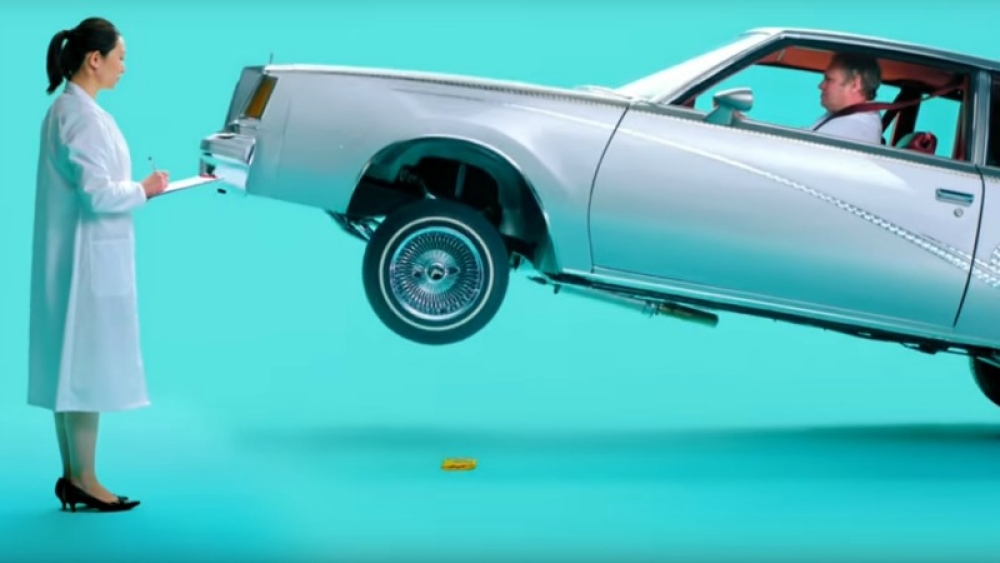Eggspressly no-puns
13 Apr 2017

A review of the week in advertising, featuring more fallout from THAT Pepsi ad, plus ideas that marketers and advertisers can pinch from, um, criminals, and some easter fun
Branding and advertising have provided two of the week's biggest stories. United's approach to 'unseating' passengers who have paid for seats on their aeroplanes will continue to roll and its share price fell 4% on Tuesday.
But Pepsi's stinker of an ad has in a sense united people. United people in hating the ad yes.
Dominic Mills asks whether the in-house department that created the ad feels Stockholm Syndrome in its marketing.
Ad Contrarian Bob Hoffman loves the fiasco, chuckling at the marketing speak from its 'foresight director' who oversaw the ad.
The NY Post blames its in-house team which produced the ad while the NY Times has a more nuanced view: “I can imagine that it was born from some combination of good intentions, corporate hedging and a huge failure to grasp the limitations of advertising on the part of the people working for Pepsi’s in-house content agency.”
There are many views on what went wrong, with Campaign bringing them together to give an autopsy and ponders whether this debacle will slow the in-house stampede.
Fair or not, the in-house agency take the rap for what went wrong.
Saturday Night Live's take on Pepsi's turkey:
This week the Press Gazette made an impassioned plea against the Google/Facebook duopoly.
The editorial stated that, "Money which had been spent on journalists holding those in power to account, particularly at a local level, has been transferred to two US-owned digital platforms which exist purely to exploit content rather than create it.
"To add insult to injury, Google and Facebook are masters at avoiding paying tax in the UK on their vast profits."
They pulled no punches, saying the duopoly were, "destroying journalism".
Marketing Week asks whether digital is even a credible mass medium.
Something a little different from Cadbury:
Writing in Campaign, Dave Lawrence examined the link between creativity and criminality to give the Miscreant Ten Commandments for Creativity.
Making a comparison to the devastating dissection of Scientology Going Clear, this piece asks how harmful food and drinks are compared to ad impressions. The answer? Advertising is significantly more porous, opaque and prone to damage according to the IAB’s president and CEO Randall Rotheberg.
Time to drain the swamp, he says. Prices will increase but they should. Quality will also increase.
A suprise easter-Santa character could be... Silvio Berlusconi? Apparently Uncle Silvio's Bunga Bunga parties are too taxing on the heart, so he has turned vegetarian and adopted five lambs. Just in time for easter:
Martha Lane Fox on the lack of diversity in tech, suggesting that it's worth effectively doubling down on the GDPR and running with the idea to spur new innovative businesses.
The UK is placed squarely at the centre of European tech investment according to the Tech Nation 2017 report.
But is this all at risk thanks to Brexit asked this provocative piece in the New York Times.
An analysis of the Guardian vs Rubicon Project case which explains both sides of the arguments and possible implications of judgements in the case.
Cluetrain manifest author Doc Searls slams adtech, which he says is, "built to undermine the brand value of all the media it uses, because it cares about eyeballs more than media.”
The Wall Street Journal says typical online metrics are too contrived and marketers just want to know that something works. This means testing is in, and quibbling over pixels is out.
Impenetrable cat treats:
Has the funnel been replaced by a loop? McKinsey says so. Their new report suggests that hooking potential customers in early is a good way to grow, which suggests that marketing to those Millennials may more useful that previously thought.
Ten routes to better usability from the Nielsen Norman Group, featuring ten mistakes to avaoid for better usability.
Is VR the future of TV? A roundup of Mipim, the Cannes for TV. The consensus seems to be that VR is more like theatre than TV or film, but with an audience of one person at a time.
Trump's all idea to fence-off Mexico has had submissions from dozens of companies. Some even have an environmental twist, covered in solar panels. But one really stands out, to create a new bi-national territory along the border, built by Mexico and the US, connected by a supersonic Hyperloop transit system. Probably not what Trump had in mind, but a wonderful idea.
The most-parodied works of art, according to the Royal Academy, featuring Sandro Botticelli, Katsushika Hokusai, Leonardo da Vinci and Edward Hopper.
Finally, it's Monday night. Imagine your are heading home on London's underground.
Golly G - some people have only gone ans organised a complete drum'n'bass rave on a Bakerloo Line train, complete with flashing lights, soundsystem and MC Harry Shotta.
The event passed off briefly, peacefully and apparently with the full cooperation of the passengers. It even made The Standard:

Please login to comment.
Comments